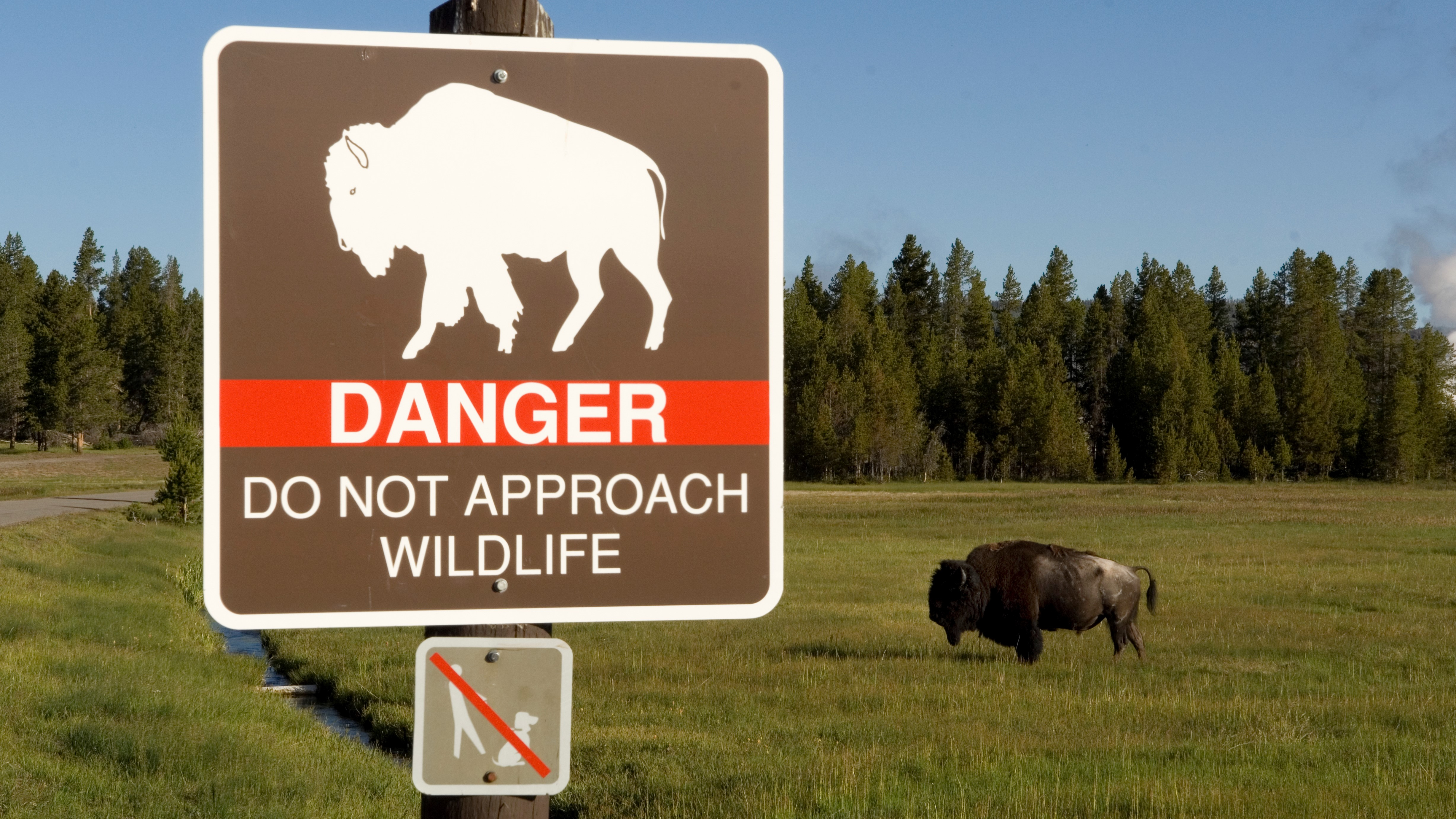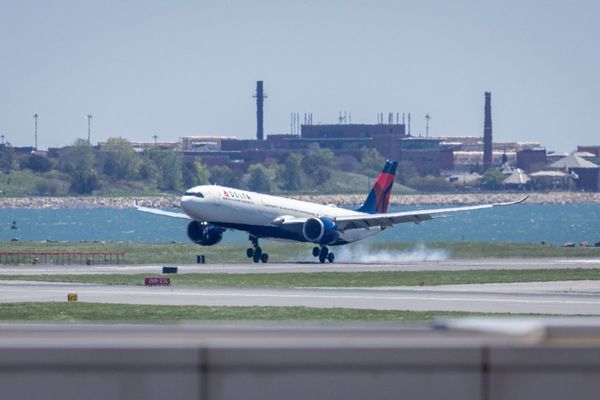
A woman strolled right up to a bison at Yellowstone National Park this week, and only held back from petting it after a Park Ranger intervened. Bison injure more people at Yellowstone than any other animal, usually because people underestimate their speed and strength, and get too close.
This incident was caught on camera by Alicia Parsons. She shared her photos online via Instagram account TouronsOfYellowstone, which calls out bad behavior at US National Parks. Other recent incidents have included visitors interrupting feeding grizzly bears, harassing elk, and cornering bison while carrying young children.
"She was probably a foot or two [away, and] was about to pet him and a ranger started yelling at her from the road!" Parsons wrote. "This was across from old faithful gas station and someone has just been charged by the same animal[.] Ambulance and rangers were just across the street from this disaster in waiting!"
Two people have suffered serious abdominal injuries after being gored by bison at US National Parks this year, and last year three people were gored by the animals within the space of a few weeks.
On May 30 2022, a woman was attacked after approaching within 10 feet of a bison on a boardwalk. On June 27, a man suffered injuries to his arm after being charged by one of the animals, and just two days later a woman was gored when she and her daughter accidentally approached a bison when returning to their car near the trailhead.
Keeping safe
Although they may look like fluffy cows, bison are wild animals and can be unpredictable. Males are most likely to become aggressive during the mating season (known as the rut), which takes place between June and September. Females will be particularly protective around their young, which are born between late March and May.
According to the National Bison Association, bison can also react badly if they feel trapped in an area: "As soon as they are forced, they perceive that they are going to be trapped against their will and they rapidly revert to an escape mentality. If they cannot escape, aggression is their next option."
The National Park Service (NPS) warns visitors to stay at least 25 yards (23 meters) from bison at all times, and never approach or try to touch the animals. It's much safer to watch from a distance using a pair of binoculars. For more advice, see our guide how to avoid being gored by a bison.







